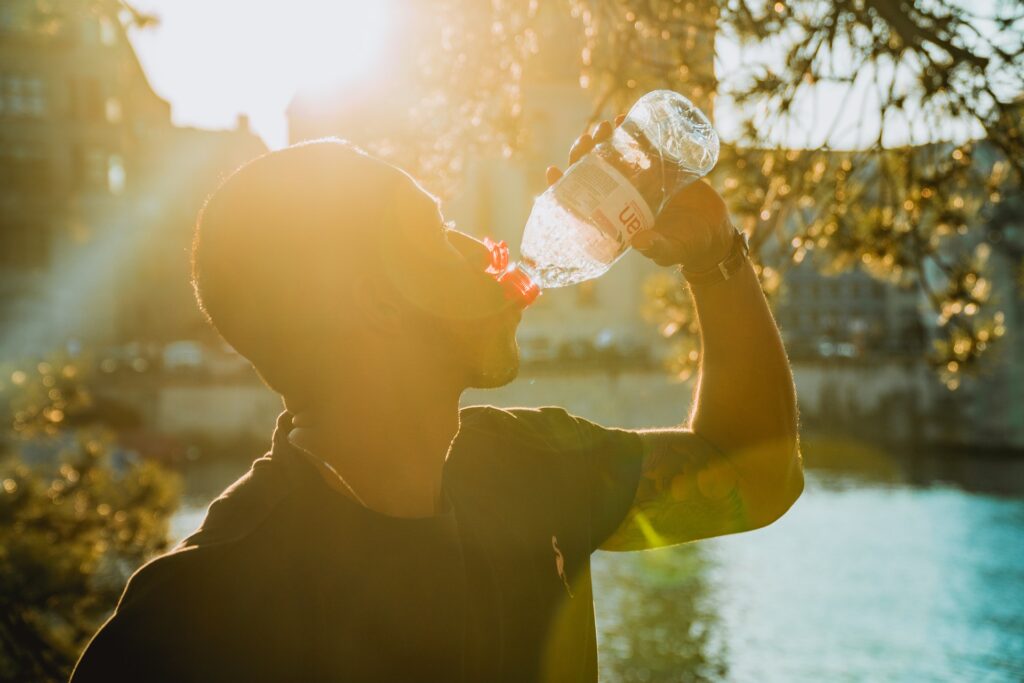According to scientific studies, the average human being can go three weeks without eating. Most people can only go up to three to four days without drinking water, though, as research shows. When dehydration sets in, a person enters a state of shock and becomes comatose despite continuing to breathe.
Therefore, there is no denying that water is an absolute necessity. Shockingly, millions of people don’t have regular access to safe water. Thankfully, a lot of work is being done to expand people’s access to safe water.
Athletes exert their bodies for several hours every day, which often takes a toll on their bodies. Due to their line of work, hydration is more crucial for them than for most people working regular office jobs.
This article explores why being hydrated is critical to an athlete’s health and performance.
How being well-hydrated can improve your sports performance
Fluids (usually water) ought to be consumed regularly throughout the day to meet the body’s demand for fluids for bodily functions. You will become dehydrated if you don’t drink enough water because dehydration prevents the body from functioning optimally and might have fatal consequences.
Depending on your body weight and size, you might need to drink anywhere from 1.5 to 2 liters of water daily to keep yourself adequately hydrated. In order to prevent dehydration, it is vital to implement appropriate hydration techniques.
Water is essential for proper bodily function and the metabolism of food into usable energy. As such, physical activity or exercise, ambient temperatures, disease, and dietary choices (e.g., high or low carbohydrate consumption) are all additional stresses that could increase bodily water losses.
Effects of dehydration
When you are dehydrated, your body transports less blood to your skin and muscles because your total blood volume is lower, which may lead to:
- Higher body temperature
- Lowered perspiration rate
- Higher muscle glycogen use
- Increased pulse rate
All of these factors contribute to diminished mental and physical capacity. So, after applying the Sloto Cash Bonus to place your bet, you should always start a workout or race well-hydrated to avoid the detrimental consequences of dehydration.
How can athletes lower their risk of injury through hydration?
Muscle exhaustion from a lack of water increases vulnerability to injury. Reduce muscle tiredness and protect against damage by drinking enough water. Additionally, athletes’ internal body temperatures rise when they work out, and as you may know, the human body sweats as a protective mechanism against overheating.
Maintaining an adequate fluid intake is critical for thermoregulation, which in turn reduces the risk of cramping, heat exhaustion, and even heat stroke by replacing the water lost through perspiration.
Daily water intake recommendations for athletes
Athletes have different fluid requirements depending on their activity, intensity, surroundings, body size, and training level. A highly trained athlete will sweat more and hence drink more water. Athletes should drink half an ounce to an ounce of water for each pound of their body weight per hour. Keep your water loss to less than 2% of your total body weight during exercise to maintain peak performance.
Furthermore, you should consume a lot of water in the hours before practice. Keep downing four to six large sips of water every fifteen to twenty minutes while you train. For each pound of water weight an athlete loses while working out, they should replace it with 24 ounces of water afterward.
The synergy of electrolytes and carbohydrates
When it comes to the physical abilities of the human body, these two go hand in hand. Since sodium attracts and carries carbohydrates into the cell, it significantly enhances their absorption, which is crucial while training for long periods.
Usually, your body can only absorb 60 grams of carbohydrates per hour per route, but sodium increases this rate, giving you additional fuel for workouts and activities.
Muscle contraction (hello, cramps!) and the transport of glucose, amino acids, vitamin C, and other nutrients into the cell also rely on sodium. Clearly, this element is doing important work in your body and deserves your respect.
There are other ways to get electrolytes into your diet besides consuming energy drinks. You can get electrolytes via salt and foods that naturally contain them.
The best ways for athletes to stay hydrated
- Create a hydration routine
It’s essential to stay hydrated all day. Adult women should drink 91 ounces of fluids daily, while men should drink 125 ounces, with 20 percent of that amount coming from food.
- Keep an eye on fluid loss
Check your weight both before and after your night or morning workout. Dehydration manifests as a 1-3% drop in body weight. Consume twenty to twenty-four ounces of water or a sports drink for every pound you shed. The aim is to make up for losses within two hours of the end of the action.
- Be aware of the warning signs of dehydration while working out
Muscle tiredness, loss of coordination, cramping, lack of energy, and impaired performance are all symptoms of dehydration. Athletes of all ages and abilities can benefit from knowing these signs beforehand to be adequately prepared in case they find themselves in these situations.
- Eat foods that contain water
Foods are also a source of hydration. Pre-game or in-game fluid replenishment with fruits like watermelon, grapefruit, and strawberries is an excellent option.
- Have fluid breaks
Try to drink three 8-ounce glasses of water every 15 to 20 minutes. This could be water or a sports drink, depending on the intensity of the exercise.
Take away
Athletes need proper hydration to remain healthy and achieve optimum performance. Hopefully, this has shed some light on sports hydration and answered many of your questions.
Image by Peggy und Marco Lachmann-Anke from Pixabay

